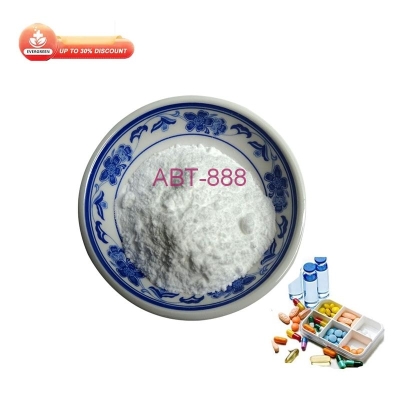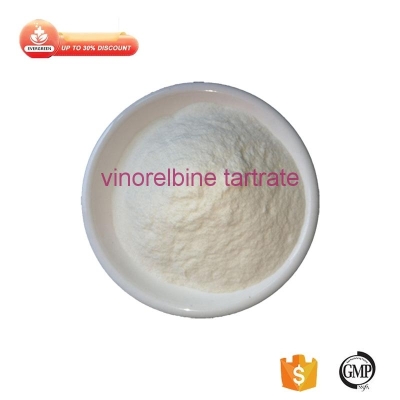-
Categories
-
Pharmaceutical Intermediates
-
Active Pharmaceutical Ingredients
-
Food Additives
- Industrial Coatings
- Agrochemicals
- Dyes and Pigments
- Surfactant
- Flavors and Fragrances
- Chemical Reagents
- Catalyst and Auxiliary
- Natural Products
- Inorganic Chemistry
-
Organic Chemistry
-
Biochemical Engineering
- Analytical Chemistry
- Cosmetic Ingredient
-
Pharmaceutical Intermediates
Promotion
ECHEMI Mall
Wholesale
Weekly Price
Exhibition
News
-
Trade Service
According to statistics, bladder cancer is one of the most common urinary tract malignancies in the world, which can be divided into high-grade cancer and low-grade cancer, and its prognosis and treatment strategies are significantly different , especially for non-muscle-invasive bladder cancer
.
Transurethral resection of bladder tumours is generally recommended for patients with low-grade non-muscle-invasive bladder cancer, while patients with high-grade non-muscle-invasive or muscle-invasive bladder cancer often require more intensive treatment modalities such as radical cystectomy, systemic chemotherapy, and radiation therapy
。 Therefore, it is of great clinical significance
to accurately assess the histological grade of bladder cancer before surgery.
The reference standard procedure for preoperative grading of bladder cancer is transurethral resection or cystoscopic biopsy
.
However, these procedures are invasive and have the potential to undergrade the cancer
.
Inadequate grading can lead to inadequate treatment, such as incomplete resection, which can further lead to tumor recurrence or metastasis
.
Amide Proton Transfer Weighted (APTw) MRI, a subtype of chemical exchange saturation transfer imaging, is a molecular MRI technique that measures the chemical transfer properties
of amide protons located at a chemical shift of 3.
5 ppm.
APTw values reflect the concentration of moving macromolecules, such as proteins and peptides
.
Previous studies have shown that APTw MRI is helpful in assessing the histological grade of tumors such as gliomas, hepatocellular carcinomas, rectal cancers, and endometrial adenocarcinomas
.
However, studies by APTw MRI in assessing the grade of bladder cancer have not been well established
.
A study published in the journal Radiology explores the potential of amide proton transfer-weighted (APTw) MRI in evaluating the histological grading of bladder cancer and evaluates the value
of APTw MRI in increasing the diagnosis of bladder diffusion-weighted MRI.
The study recruited pathologically confirmed participants with bladder cancer in a university teaching hospital between July 2020 and September 2021, each treated with a lesion greater than 10 mm
.
All participants underwent preoperative multiparametric MRI, including APTw MRI and DWI
.
The mean APTw and apparent diffusion coefficient (ADC) values of the primary tumor are measured independently by two radiologists and a subject operating characteristic curve is generated to assess the diagnostic performance
of these quantitative parameters.
In total, there were 83 participants (mean age, 64 years± 13 [SD]; 72 men) were evaluated
.
Fifty-one had high-grade bladder cancer and 32 had low-grade bladder cancer
.
APTw values were higher for high-grade bladder cancer compared with low-grade bladder cancer (6% [IQR, 4%-12%] vs 2% [IQR, 1%-3%]; P < .
001), ADC values are lower (0.
92 × 10-3 mm 2/sec ± 0.
17 vs 1.
21 × 10-3 mm2/sec ± 0.
25; P <.
001).
APTw and ADC distinguished AUCs for low- and high-grade bladder cancer similarly (both 0.
84; P = .
94).
In addition, the combination of the two techniques improved diagnostic performance (AUC, 0.
93; all P = .
01).
MRI image of a 63-year-old woman with bladder cancer with a tumor 20 mm
long.
Axial position (A) T2-weighted image, (B) diffusion-weighted image (b=1000 sec/mm²), (C) dynamic contrast enhancement image, (D) apparent diffusion coefficient (ADC) image, (E) Amide proton transfer weighted (APTw) image of T2-weighted image fusion, and (F) microscopic image of hematoxylin-eosin staining (original magnification, 3100).
(E) The color bar represents the APTw value
.
Bladder imaging report and data system 2 points
.
The average ADC and APTw values measured by the two radiologists were 1.
11 3 1023mm2/sec and 2%,
respectively.
Pathologic examination after transurethral resection showed no detrusor invasion, and the histological grade of the lesion was low
This study suggests that amide proton transfer-weighted (APTw) MRI is beneficial in assessing the histological grade of bladder cancer and can provide additional information to improve the diagnostic outcome
of diffusion-weighted MRI.
Original source:
Huanjun J Wang,Qian Cai,Yiping P Huang,et al.
Amide Proton Transfer-weighted MRI in Predicting Histologic Grade of Bladder Cancer.
DOI:10.
1148/radiol.
211804







